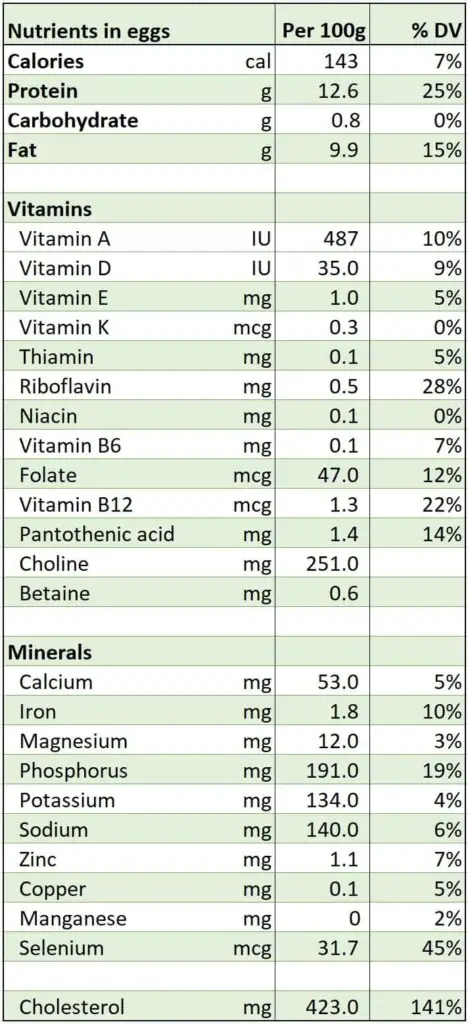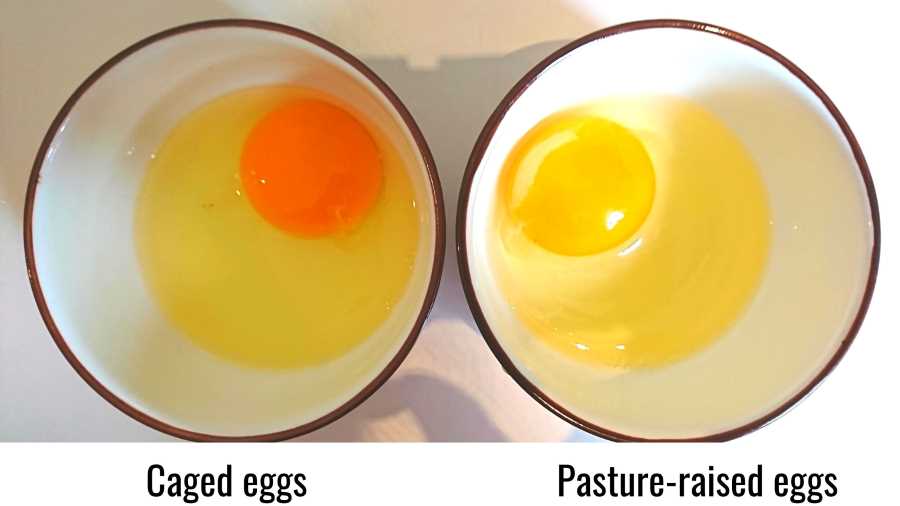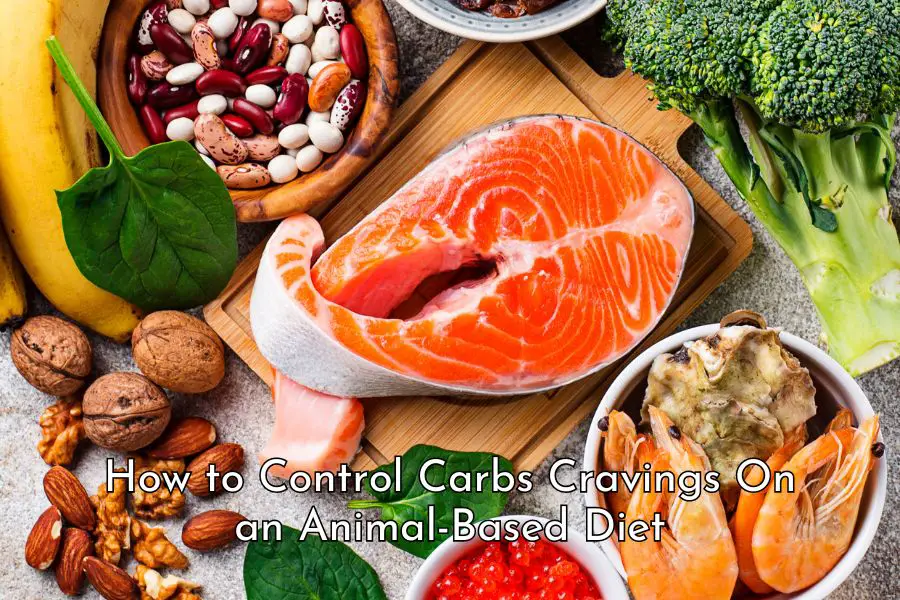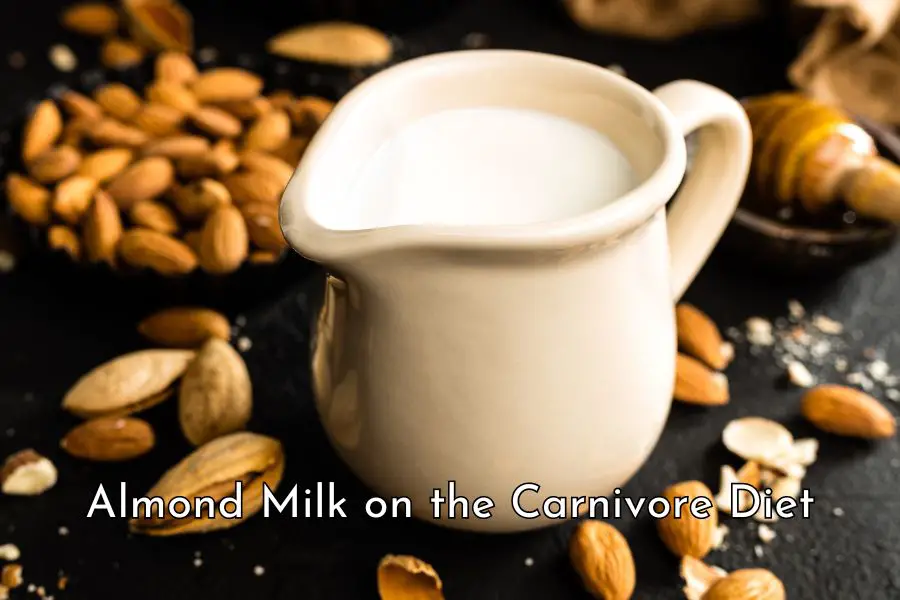Eggs are controversial. One day you read that eggs are the healthiest food on the planet, the next day you may read that eggs are high in saturated fat and cholesterol which can harm heart health and lead to diabetes, prostate and colorectal cancers. So, should you eat eggs on the carnivore diet?
In this post, we will explore the question of whether eggs are good to add to your list of carnivore food, and if you eat them, raw or cooked is better, how many eggs you should eat a day, and the best type of eggs to eat and why organic eggs may not be the best.
Should you eat eggs on the carnivore diet?
If you don’t have egg allergies, they are great to have on the carnivore diet because they are a nutritious and complete whole food that provides you with many nutrients including superior quality proteins, good fats and a wide range of essential vitamins and minerals as well as choline and cholesterol.
1. Superior quality proteins
Eggs are a source of superior-quality proteins because they are complete proteins with the highest possible quality rankings.
Proteins are the building blocks in the human body which are made up of amino acids. Your body needs about 20 different amino acids but can only make 11 of them. Nine of them, called essential amino acids, must come from dietary sources.
Egg proteins are complete proteins because they contain all 9 essential amino acids whereas plant proteins are incomplete proteins because they often lack one or two essential amino acids.
Furthermore, eggs proteins have the best quality rankings amongst all proteins from both plant and animal sources.
As can be seen in Table 1 below, egg proteins are superior because they have:
- the highest Protein Efficiency Ratio which determines protein quality by measuring animal growth. Eggs’ Protein Efficiency Ratio is 3.9 compared to only 2.9 for beef protein
- the highest Biological Value which determines protein quality by measuring how efficiently the human body uses dietary protein. Eggs have the perfect biological value of 100 compared to 80 for beef protein
- the highest Net Protein Utilization which determines the percentage of amino acids consumed that are eventually converted into proteins and utilized by the body. Egg protein has a utilization of 94 compared to 73 for beef
- the highest Digestibility Score which measures protein quality based on human essential amino acid requirements and our ability to digest it. Egg protein has a digestibility score of 1 compared to 0.92 for beef protein.
Table 1: Quality rankings of various animal and plant proteins
| Protein Type | Protein Efficiency Ratio | Biological Value | Net Protein Utilization | Protein Digestibility Corrected Amino Acid Score |
|---|---|---|---|---|
| Beef | 2.9 | 80 | 73 | 0.92 |
| Eggs | 3.9 | 100 | 94 | 1.00 |
| Milk | 2.5 | 91 | 82 | 1.00 |
| Casein | 2.5 | 77 | 76 | 1.00 |
| Whey protein | 3.2 | 104 | 92 | 1.00 |
| Soy protein | 2.2 | 74 | 61 | 1.00 |
| Peanuts | 1.8 | 0.52 | ||
| Black beans | 0 | 0 | 0.75 | |
| Wheat gluten | 0.8 | 64 | 67 | 0.25 |
| Rice | 2.0 | 64 | 74 | 0.50 |
| Pea | 1.4 | 58 | n/a | 0.59 |
Source: Nature’s Source and Journal of Sports Science and Medicine.
While everyone on the carnivore diet sings the praise for beef, far less has been mentioned of eggs.
Perhaps most people are not aware of the fact that beef protein has lower quality rankings than egg protein with lower efficiency, biological value, utilization, and digestibility.
In simple terms, based on these quality rankings, your body can get more out of 1 gram of egg protein than 1 gram of beef protein for protein synthesis in the body.
If you are into bodybuilding, eggs are one of the best sources of protein. And please don’t just eat egg whites. A small study has found that whole egg consumption had a greater stimulation of protein synthesis than did pure egg white consumption.[1]
2. Source of good fats
Eggs are a good source of saturated fats and monounsaturated fats as well as a small amount of omega 3 fatty acids.
A 100-gram serving has about 10 grams of fat, of which about 3 grams are saturated fats and about 4 grams are monounsaturated fats.
You might have heard that saturated fats are bad for your heart.
As I mentioned in the previous post on cooking oils on the carnivore diet, this is a total myth.
Available evidence shows that saturated fats do not clog up your arteries or raise the risk of heart disease or stroke.
A landmark systematic review and meta-analysis of observational studies showed no association between saturated fat consumption and (i) all-cause mortality, (ii) coronary heart disease, (iii) coronary heart disease mortality, (iv) ischaemic stroke or (v) type 2 diabetes in healthy adults.[2, 3]
In addition, a systematic review of 15 randomized controlled trials with 59,000 participants found no significant benefit from reducing saturated fats on heart attacks, strokes and all-cause mortality.[4]
3. A wide range of essential vitamins and minerals
As can be seen in Table 2 below, eggs provide you with a wide range of most essential vitamins and minerals.
Eggs are a good source of many vitamins including vitamin A, vitamin D, vitamin E, vitamin K, folate, thiamin, riboflavin, vitamin B6, vitamin B12, and pantothenic acid. Perhaps, the only essential vitamin that is missing in eggs is vitamin C.
Eggs are also loaded with so many minerals including calcium, iron, magnesium, phosphorous, potassium, sodium, zinc, copper, manganese, and selenium.
The fact that eggs have everything needed to make a perfect little bird tells you how nutritious and complete a whole food they are.
Table 2: Nutrients in eggs

3. Great source of choline
Choline is not frequently mentioned like other essential vitamins and minerals but it was officially recognized as an essential nutrient by the Institute of Medicine in 1998.
Choline has a complex and wide-ranging role in the human body. It is needed for neurotransmitter synthesis, cell-membrane signaling, lipid transport, and methyl-group metabolism.[5]
Choline is critical for the brain and memory development of the fetus and may lower the risk of neural tube defects in newborns. It is therefore especially important for pregnant and nursing mothers to get sufficient choline intake.[6, 7]
Choline deficiency has been linked to the development of liver disease, heart disease, and possibly neurological disorders.[8]
Though your body can make a small amount of choline in the liver, it is insufficient to meet the body’s needs and the rest must be obtained from the diet.[9]
Egg yolks are the most concentrated source of choline providing 680 milligrams per 100 grams.[10]
The other high-concentrated source of choline is beef liver (333 mg per 100 g). Muscle meat also has a moderate amount of choline (e.g. lean beef has 85 mg per 100 g).
The current recommended adequate intake for men is 550 mg/day and for women is 425 mg/day.[11]
If you have any concerns about your choline intake, have a couple of egg yolks a day, a few slices of liver with your steaks and you shouldn’t have any problem meeting the above recommendation.
Also, note that the above recommendation is for the general population. On the carnivore diet, in the absence of plant anti-nutrients, you probably don’t need as much choline because your body can absorb nutrients from animal food much better than plant food.
4. Great source of cholesterol
Eggs are very high in cholesterol and this is one of the reasons why eggs have been demonized.
However, the reason that eggs are high in cholesterol is the same reason as why your brain is the most cholesterol-rich organ: it is because cholesterol is essential for animal and human life.
Cholesterol is an important component of the cell membrane and contributes to the structural makeup of the membrane as well as modulates its fluidity.
Cholesterol functions as a precursor molecule in the synthesis of vitamin D, steroid hormones, and sex hormones. Cholesterol is also a constituent of bile salt used in digestion to facilitate the absorption of fat-soluble vitamins A, D, E, and K.[12]
Because of its critical role in the proper functioning of the brain, your brain is the most cholesterol-rich organ, it contains about 20% of the whole body’s cholesterol despite making up only about 2% of total body weight.[13]
Without cholesterol, we are instantly dead.
Cholesterol is so important that if you don’t get enough of it from dietary sources, your body will make it.
You might wonder why you’ve been told all your life that cholesterol is bad for you and that you should avoid all cholesterol-rich food?
It all started with a flawed observational study of seven countries by Ancel Keys in 1952 which shows an association between saturated fat consumption and risk of heart disease. However, Ancel Keys left out 15 countries that did not support his hypothesis. When all 22 countries were included, no such association is found.
If you are interested, please read the series Ancel Keys’ Cholesterol Con by professor Tim Noakes here.
There is no evidence that dietary cholesterol results in an increase in bad cholesterol (LDL) but there is some evidence that it will increase your good cholesterol HDL.[14, 15, 16]
Several studies also show that high cholesterol is associated with lower mortality risks while low cholesterol increases many health risks. However, note that many of these are observational studies.[17, 18, 19, 20, 21, 22, 23, 24, 25, 26, 27, 28, 29]
Raw eggs vs cooked eggs
Some people feel better on raw meat than cooked meat on the carnivore diet.
As to eggs, a combination of both seems to be the best approach.
Egg whites are mostly proteins while egg yolks contain fats, vitamins, and minerals.
One of the main proteins in egg whites is ovalbumin which, if eaten raw, can block digesting enzymes. Another protein is avidin which can bind to biotin (vitamin B7, an essential nutrient) and, if you eat raw egg whites in large quantities, there is a potential risk of biotin deficiency.[30, 31]
There is also a small risk of contamination with raw egg consumption.
By cooking the egg whites, those proteins will be denatured and their bioavailability will be increased while the risk of bacterial contamination is eliminated.
A small study found that 91% of proteins in cooked eggs were digested compared to only 51% if raw eggs were consumed. So it seems that cooking eggs definitely increases their bioavailability.[32]
But egg yolks are okay to eat raw if you enjoy eating them that way. Because it is protected by the egg whites, there is a very little risk of contamination and eating them raw can help prevent some nutrients from being destroyed by heat.
Dr. Paul Saladino often eats raw egg yolks with his steaks and discards the egg whites.
However, I wouldn’t recommend throwing away the egg whites for it is wasteful if you eat a lot of eggs. In addition, I think eating whole eggs is also consistent with the eating nose-to-tail principle. You can enjoy whole eggs, for example, by:
- making sunny-side up eggs
- eating the raw egg yolks with steaks and cooking the egg whites separately with a bit of beef tallow
- making scrambled eggs using egg whites and then mix in the raw egg yolks in the last minute.
How many eggs should you eat a day?
Because eggs are nutritious and complete whole food as discussed above, my personal view is, if you enjoy them, eat as much and as frequently as you like.
The only reservation I have is that while our ancestors would have eaten eggs for millions of years, they wouldn’t have eaten a lot of them.
Imagine going bushwalking, how often would you see a bird’s nest and how hard would it be to steal those eggs?
Hunting certainly would have delivered a higher calorie return per energy expenditure for our ancestors than climbing trees and collecting eggs.
If eggs were more readily available, our ancestors would have eaten a lot of them.
However, I’m not sure whether the fact that eggs were not a prominent feature of their diet has had any material influence on our genetics.
Apart from the digestibility issue with raw egg whites discussed above (which can be fixed easily through cooking), no other problems with egg consumption have been identified.
I personally make no effort to incorporate a lot of eggs in my diet, I eat them a couple of times a week for variety but don’t enjoy them as much as steaks.
But I would feed my children as much as they want and they like eggs more than meat so they do eat a lot of eggs regularly.
What are the best eggs to eat?
Of all the eggs available including caged, free-range, organic free-range, and pasture-raised, pasture-raised eggs are the best ones to eat.
Caged eggs are laid by hens that spend their entire life in cages. They eat, poop, and lay eggs in the same crowded cages.
From what I’ve read, caged egg yolks would have pale white color due to the hens’ unnatural diet and their lack of sunlight, but food dyes are added to the hens’ feed so that the yolks of caged eggs would have different hues to suit consumers in different markets.[33, 34] The same thing happens with salmon, nobody wants to eat pale salmons so farmers feed them food dyes to turn salmon flesh pink.
In some markets (e.g. India and China), cheap dye chemicals that are damaging to chicken and human health are being used freely in the poultry industry. Some even warn that these chemicals are carcinogenic.[35, 36, 37]
If you buy caged eggs which have bright orange-red color, be aware that you are paying for and consuming dye chemicals with those eggs too.
Free-range eggs are eggs laid by hens that are housed in cages but do have outdoor access. There are regulations in place that producers must meet in order for the eggs laid by those hens to be labeled “free-range”. However, those free-range hens are still fed the same diet as caged hens.
I had a look at the cartons of caged and free-range eggs sold at a local supermarket and found that their protein, fat, vitamin A, folate, vitamin B12, vitamin D, vitamin E, and iron contents were identical.
Organic free-range eggs are laid by hens that have outdoor access and are fed organic feed.
I found that organic free-range eggs sold in our local supermarket did have higher vitamin A, vitamin B12, and vitamin E than free-range eggs but protein, fat, folate and iron contents were identical. Other nutrients were not listed.
Pasture-raised eggs are laid by hens that spend their time outdoors during the day and only go indoors at night to sleep. As a result, they feed on whatever they can find in the pasture. Being omnivores, they will eat insects, bugs, grubs, grass, and whatever else they can find.
Pasture-raised chickens are given supplementary feed because it is unlikely to be economical if they are left to live off the pasture foods only. However, pasture-raised eggs are of superior quality compared to caged chickens because:
- they get a wide variety of foods from the natural environment
- they are a lot healthier given the free outdoor access
- they are a lot happier.
A small study found that pasture-raised eggs have 2/3 more vitamin A, 2 times more omega-3 fatty acids, 3 times more vitamin E, 7 times more beta carotene, 1/3 less cholesterol and 1/4 less saturated fats compared to caged eggs.[38]
Pasture-raised eggs are definitely the best to eat but they do cost a lot more.
If you enjoy eggs and have the space, try to raise a few hens for eggs. They are a bit of work but definitely worth the effort.
If you can get organic feed for them, you would have a regular supply of organic pasture-raised eggs which are the highest quality eggs that money can buy.

Conclusion
Based on available evidence, eggs are super nutritious and definitely okay to eat on the carnivore diet. While there is some research, for example, this one, that links consumption of eggs to risk of cardiovascular diseases and all-cause mortality, they are observational studies only.
The only people who should avoid eggs are those with egg allergies or with autoimmune issues and other serious health issues.
The IMNCI clinic in Hungary has been using an animal-based diet to treat many chronic conditions including type1 diabetes, type 2 diabetes, brain cancer, rectal cancer, lung cancer, epilepsy, and Crohn’s disease.
In their protocol, for patients with serious health issues (metastatic cancer, post-chemotherapy, autoimmune conditions), the most strict version comprising only fatty meat and organ meat is prescribed.
For patients with less serious health issues (overweight, type 2 diabetes, hypothyroidism), other foods such as eggs, fish, poultry, seafood, and certain fruits and vegetables may be allowed up to 30% (in volume) of total food intake.
As they have treated thousands of patients with this diet and have clinical data to back that up, it makes sense to follow their protocol and stay away from eggs if you have those serious health problems.
If you find this post helpful, please consider sharing this post and my site with your family, friends, and followers. That would be much appreciated. Please also check out my library of articles on the carnivore diet here which is updated regularly.
Disclaimer: The information in this post is for reference purposes only and not intended to constitute or replace professional medical advice. Please consult a qualified medical professional before making any changes to your diet or lifestyle.
Photo credit: Nick Fewings on Unsplash





